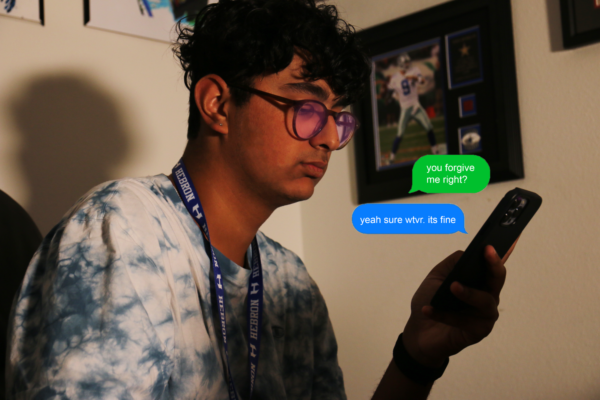Point/Counterpoint: Is standard time or daylight saving time better?
For daylight saving time: Kate Knauff
Making daylight saving time permanent is a spring forward.
To me, time doesn’t really make sense. Any time I travel and switch time zones, I have to make my parents explain why time zones exist, and the same thing happens when we spring forward or fall back an hour. After I heard about the Sunshine Protection Act to make daylight saving time permanent, meaning we will never change our clocks, I was ecstatic.
The changing of the time has only ever messed up my routines. When we change our clocks, I have issues waking up or going to sleep on time.
Daylight saving time is superior to standard time, when we all “fall back” an hour, because the days stay brighter longer. This has mental and physical health benefits. Since the sun is out longer during daylight saving time, the effects of seasonal depression are minimized.
The longer days aid in productivity as well. When the outdoors stay brighter for longer, I feel more productive, because it feels like there are more hours in the day. I also get tired later because the sunlight keeps me awake. The longer light will also create a safer environment for people. During standard time, I would leave work in the pitch dark, but now the sky is slightly brighter, making me feel safer.
Some standard time enthusiasts argue they don’t want to go to school and work in the dark, but that is not an issue. The time is only moved back an hour, so unless someone is going to work before 7 a.m., there will be sunlight when they are heading to the office.
Daylight saving time is the obvious option in the debate of times because of the benefits from longer days.
Against daylight saving time: Nyla Smith
Anyone who has flown into a different time zone knows what it’s like to experience jet lag. The amount of drowsiness that you feel right before passing out for a couple of hours is an effect of having your circadian rhythm disrupted. This is exactly why we should stick with standard time.
Switching to daylight saving time permanently will affect our body’s circadian rhythms, which are the physical, mental and behavioral changes our body follows on a 24-hour cycle. The circadian rhythm responds mainly to light and dark — an example of this would be sleeping at night and being awake during the day.
It’s important we keep the circadian rhythm in mind when discussing which time should be permanent. Our neurological systems have already become accustomed to standard time; if we stuck to daylight savings time, we would wake up to dark mornings, which leads to our light-dark cycle being out of sync.
Personally, I have found that I am way less productive during daylight saving time, and I try to combat that by working harder, but ultimately end up burning myself out. I’ve also noticed that I have a short temper during this time. I tend to become more snappy with people even if it’s not my intention. This leads to forming bad relationships in both my personal and professional life at times.
Experts say the circadian clock does not only affect your brain, but the cells in your heart, liver and other areas of the body. That means if we alter or change our circadian rhythms from their natural state, there can be serious health effects such as chronic insomnia, depression, lack of energy and more. There could also be an increase in risk of cardiovascular disease, diabetes, obesity and more.
That being said, it’s safer to continue using standard time since our bodies are already accustomed to it. Some may make the argument that our bodies can adjust over time, but studies have shown that it can take several months for our bodies to adjust, and by that time, we can still get major health issues beforehand.

Senior Kate Knauff is the news section editor and this is her third year on staff. She enjoys drinking coffee, hanging out with her friends and watching...

Senior Nyla Smith is the news editor and this is her third year on staff. In her free time, she enjoys knitting and watching movies.

Senior Sarosh Ismail is the visual editor and this is her third year on staff. Ismail has an unhealthy obsession with coffee, loves her dog and has too...












![Junior Chase Harris watches JJ Hatcher’s family being recognized on the field. Harris and Hatcher were close friends, playing baseball together since they were kids and playing football together in high school. “[The game] makes me sad,” Harris said. “But it definitely feels really good because [JJ] will be there in spirit and be with us, cheering us on and running alongside us.”](https://www.hebronhawkeye.com/wp-content/uploads/2023/08/IMG_2267.JPG_YES-600x400.jpg)
